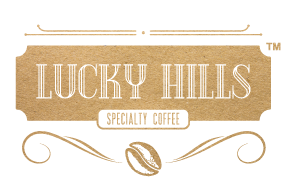In the coffee world, a trend is growing in popularity: direct trade coffee. Companies like Lucky Hills have embraced this business model to cultivate meaningful connections and promote a transparent relationship between producers and buyers, ensuring quality from the source to the final consumer.
But what exactly is direct trade coffee, and why should you consider adopting it for your establishment? Continue reading this article to find out!
What is Direct Trade Coffee?
Direct trade coffee refers to a purchasing model where roasters, like Lucky Hills, buy coffee beans directly from producers, bypassing intermediaries. This approach emphasizes transparency, fair compensation, and clear communication.
In contrast to conventional supply chains that prioritize price and volume, direct trade simplifies the coffee supply chain, fostering a closer relationship between coffee farmers and the roasters who purchase from them.
Read also:
Where to buy coffee for coffee shops and restaurants?
Benefits of Buying Direct Trade Coffee
Choosing direct trade coffee offers significant advantages, including:
-
High-Quality Specialty Coffee
Direct trade coffee prioritizes quality over quantity. By establishing direct relationships with producers, companies can carefully select the best beans that satisfy the most discerning palates and meet their specific flavor profiles and quality standards. This ensures a superior product for customers, setting the company apart in a competitive market.
-
Direct Relationships
In direct trade, transparent connections between roasters and growers are established, eliminating intermediaries. These connections ensure that the coffee reaches the roasters in its freshest and highest quality state, promoting direct and open communication between the involved parties. This fosters trust and collaboration, leading to a deeper understanding of the needs and priorities of both the roasters and the growers.
-
Fair Pricing
A key principle of direct trade is ensuring fair compensation for producers. By cutting out intermediaries and negotiating prices directly, companies can pay farmers what truly reflects the value of their beans and the effort involved in their production. This not only improves the livelihoods of producers but also encourages quality and sustainability.
-
Transparency and Traceability
Direct trade coffee promotes transparency and traceability throughout the supply chain. By working closely with producers, companies can trace the journey of their coffee beans from farm to cup, ensuring ethical and sustainable practices at every stage. This transparency resonates with consumers who are increasingly concerned about the origins and impact of their purchases, building trust and loyalty to the brand.
In today’s context of conscious consumption, the demand for ethical products, like direct trade coffee, is notable. Opting for this model goes beyond a mere business strategy; it reflects a commitment to differentiation and customer loyalty.
Therefore, having direct trade coffee in your company is not just about choosing the beans; it’s a smart tactic for establishing an authentic connection with consumers and solidifying your brand’s position in the market.
Lucky Hills’ Specialty Direct Trade Coffee
At Lucky Hills, we adopt direct trade to ensure excellence in the quality and flavor of our specialty coffee.
We carefully import specialty beans from South Minas Gerais, Brazil, and roast them locally in Florida. This approach not only guarantees freshness but also provides a unique aroma, delivering an authentic and engaging sensory experience even for the most discerning palates.
Contact our specialists to discover how Lucky Hills’ direct trade coffee can enhance your brand and help it stand out in a highly competitive coffee market.



